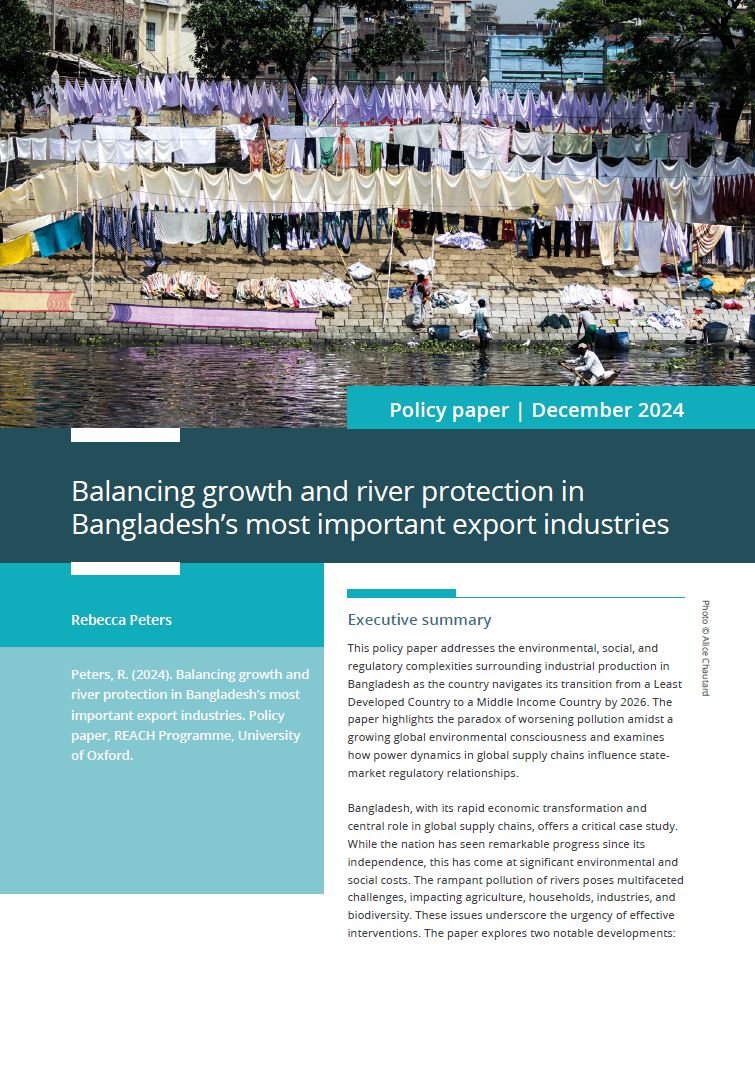Rebecca Peters (2024)
This policy paper addresses the environmental, social, and regulatory complexities surrounding industrial production in Bangladesh as the country navigates its transition from a Least Developed Country to a Middle Income Country by 2026. The paper highlights the paradox of worsening pollution amidst a growing global environmental consciousness and examines how power dynamics in global supply chains influence state-market regulatory relationships.
Bangladesh, with its rapid economic transformation and central role in global supply chains, offers a critical case study. While the nation has seen remarkable progress since its independence, this has come at significant environmental and social costs. The rampant pollution of rivers poses multifaceted challenges, impacting agriculture, households, industries, and biodiversity. These issues underscore the urgency of effective interventions. The paper explores two notable developments:
- The 2019 ‘Rights of Rivers’ Verdict: In a landmark decision, the Bangladesh High Court recognized the legal “rights” of rivers, a ruling intended to combat entrenched water pollution. The verdict set directives to empower the National River Conservation Commission (NRCC) and other regulatory bodies to act against river pollution and encroachment. This judgment highlights the evolving legal landscape and its implications for environmental governance.
- Private Governance and Regulatory Pressures: The interface between private governance initiatives, such as corporate environmental responsibility programs, and regulatory frameworks is examined. These initiatives are scrutinized for their effectiveness in addressing environmental degradation and the power imbalances that emerge within global production hubs.
This paper assesses the intersection of state, market, and societal relationships and their consequences for tackling water pollution. It outlines implications for various stakeholders, including:
- Factories and industries: The need for stricter compliance with environmental regulations to reduce industrial pollution.
- National policy and regulatory agencies: Strengthening institutional capacity and enforcement mechanisms.
- Civil society actors: Mobilizing grassroots efforts to hold industries and regulators accountable.
The paper concludes by identifying avenues for future research, particularly on environmental regulation in the Global South, including exploring the contested dynamics of governance and the long-term effectiveness of legal and private-sector initiatives. By offering a snapshot of Bangladesh’s current trajectory, the paper provides insights into the broader challenges of sustainable development, regulatory governance, and the global environmental movement.

